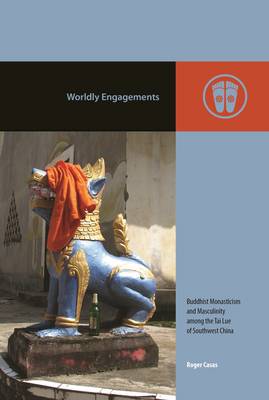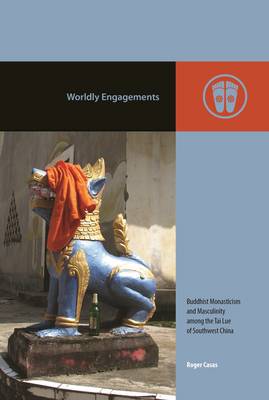
- Afhalen na 1 uur in een winkel met voorraad
- Gratis thuislevering in België vanaf € 30
- Ruim aanbod met 7 miljoen producten
- Afhalen na 1 uur in een winkel met voorraad
- Gratis thuislevering in België vanaf € 30
- Ruim aanbod met 7 miljoen producten
Zoeken
Worldly Engagements
Buddhist Monasticism and Masculinity Among the Tai Lue of Southwest China
Roger Casas
€ 85,45
+ 170 punten
Omschrijving
The Tai Lue of Sipsong Panna, located in China's southern Yunnan province, is the largest community of Theravada Buddhists in a country where the Mahayana tradition is dominant. In recent decades, and in light of ever-increasing global connectivity and visibility online, the public participation of Tai Lue novices and monks in practices such as eating in the afternoon, drinking alcohol, having girlfriends, and competing in sports--all considered unfitting, even unacceptable, behavior for Buddhist monastics in China and Southeast Asia--has been evidenced as proof of the backwardness of this minority religious community. Worldly Engagements places such alleged misconduct at the center of its enquiry to demonstrate that, far from characterizing a corrupt form of practice, it represents an essential part of the monasticism traditionally prevalent in the region, an all-encompassing and amphibious technology of self-mastery inextricably embedded in the mundane and the non-religious--that is, a vernacular discipline concerned mainly with making boys into men. It is a rich portrayal of the temple experience as a site for Lue youths to negotiate demands from families, religious superiors, and peers, as well as navigate the challenges presented by national models of masculinity and the powerful influence of Thai Buddhism.
Specificaties
Betrokkenen
- Auteur(s):
- Uitgeverij:
Inhoud
- Aantal bladzijden:
- 252
- Taal:
- Engels
- Reeks:
Eigenschappen
- Productcode (EAN):
- 9798880700875
- Verschijningsdatum:
- 30/11/2025
- Uitvoering:
- Hardcover
- Formaat:
- Genaaid
- Afmetingen:
- 154 mm x 232 mm
- Gewicht:
- 430 g

Alleen bij Standaard Boekhandel
+ 170 punten op je klantenkaart van Standaard Boekhandel
Beoordelingen
We publiceren alleen reviews die voldoen aan de voorwaarden voor reviews. Bekijk onze voorwaarden voor reviews.








